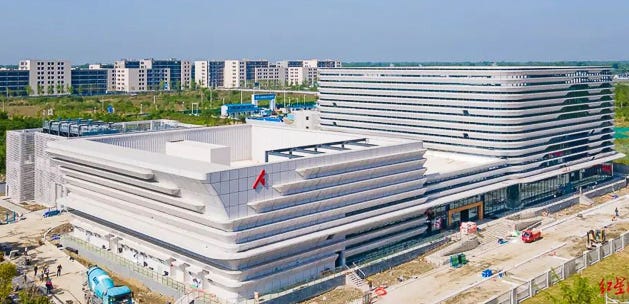
Sichuan joins ZBB reform push—how is this shifting policy?
Sichuan reform further upends conventional norms
zero-base approach challenges decades-old ‘base+’
3rd Plenum and GWR add endorsement
As local coffers run low, Beijing’s zero-base budgeting ambition shoots for a sustainable fiscal future. The aim is better allocation, not austerity. The model seeks to send money where most needed, while cutting waste, working with, not against stimulus action. This fiscal experiment, perhaps the most far-reaching yet under Xi, seeks to modernise how local areas spend—habits set in stone for decades. By pulling budget power to the centre while promising smarter spending, Beijing tries what few have done well: Carter won with ZBB in Georgia (1972) but failed when it tried it for the whole nation. Can the PRC succeed where others have not?
on the front foot
Sichuan is the latest recruit to zero-base budgeting (ZBB). Its plan to extend fiscal and tax reform issued 10 April 2025, heralds action towards the once-radical fiscal approach now reshaping PRC budgetary governance.
Taking on ZBB is decisive: no more conventional incremental budgeting built on base+ with little scrutiny of baseline spending. A ‘zero base’ is instead applied to expenditure. Historical precedent is no longer grounds for a free pass on any spending.
taking local trials national
The ZBB story began in the early 1990s with isolated provincial trials. Guangxi ran such a reform in 2021, recovering over C¥18 bn in idle project funding. With an arguably more systematic approach, Anhui proceeded to end expenditure baselines outright in a wide-ranging plan.
Anhui marked itself out as a ZBB test province in 2022. Its resolve, notably curtailing conventional baselines, owed much to Zuo Zizhi 左自智 a Provincial Department of Finance deputy director. Long-serving technocrat, Zuo’s expertise in the ZBB rollout was noticed in Beijing.
The national implications of Anhui's initiative were showcased in a livestream CCTV roundtable. Featuring Zuo and colleagues, it addressed the path forward, evidently accepting ZBB’s inner tensions and interagency disputes. This candour, rare in PRC politics, was read as a strong commitment to advancing the model nationally.
Indeed, 'deepening ZBB’ had been urged by the Resolution of the July 2024 Third Plenum. In his March 2025 Two Sessions Government Work Report, Li Qiang 李强 broached the topic of national-level ZBB reform via centrally-initiated pilots.
open budget approach
ZBB clearly facilitates fiscal resource allocation, given the tight current balance, argues Wang Zhengyu 王振宇 Liaoning University Local Finance Research Institute.
The Sichuan case stands out. Rather than standing alone, ZBB was integrated into a broad framework, defined under 9 major topics and 35 tasks, reflecting links with other actions. Its ‘open budget’ protocol allows extensive public engagement with delegates, the public, and other peers, aiming for broader consensus for tough fiscal tradeoffs.
The rollout was explicitly multi-dimensional as regards
order of spend
basic support guarantees
layered and categorised budget preparation
review mechanisms
fiscal strength coordination
Striving for rollout by 2026, completion of key tasks by 2027, and wrap-up by 2029, Sichuan’s clear milestones bid for accountability despite complex reform.
Chinese-style fiscal modernity
PRC-style ZBB is claimed more open to adjusting to local conditions than in other countries. Rather than uprooting convention, experts say, it is framed within the nation’s fiscal norms.
Local trials reflect an incremental, pragmatic approach. ‘Pure’ ZBB entails justifying each and every line item. The PRC variant focuses on expenditure types, above all those that are non-continuous and non-statutory (e.g. high-tech initiatives, industry parks), balancing ambition with practical constraints.
Support measures reinforce ZBB’s impact. Blend it, urge experts, with performance budgeting, medium-term fiscal planning, and scientific expenditure standards. This would embed it within broader innovations, forestalling complaints about administrative overheads.
ZBB’s point is to escape the ‘inertia’ of fiscal expenditure, ‘directing more funds to urgent areas and shoring up major national strategic tasks,’ insists Nie Tianqi 聂天奇 Galaxy Securities.
results
Early returns have been promising. As well as Guangxi’s C¥18 bn recovered from idle projects, Anhui found C¥21.6 bn in inefficient funds while trimming 482 projects in a single year. Zhengzhou’s focused rollout reduced targeted expenditures by some 40 percent, freeing up C¥3 bn.
Assuming a modest 5–10 percent reduction nationally, experts estimate ZBB may find as much as C¥3 tn in the short term. This buffer may ease pressure, freeing up funds for tech innovation, social welfare, and other purposes.
Beyond savings, ZBB assists institutional reform. Cross-agency collaboration entails breaking funding silos. Aligning budgets with policies improves prioritising projects. Accountability to legislatures and the public is beefed up by its greater transparency.
Rolling out, the reform focus has shifted from cost-cutting to sustainable governance. Anhui’s announcement of ‘ZBB 2.0’ in 2025 signals evolution toward deeper integration.
finance experts
Zuo Zizhi 左自智 | Anhui Province Department of Finance deputy director
Fiscal modernisation, argues Zuo, must move on from the 'base+growth’ model, a framework misaligned with needs, with political interests dominant and agencies blocking budget cuts rather than rationalising spending.
Switching funds from 'zombie policies' to sectors in need requires both resolve and expertise. After reviewing over 300 policies, Zuo's team quickly found C¥85.8 bn to reassign. Industry subsidies, reduced by some 50 percent, were prime targets.
Sustainable rollout remains the challenge. Without broad information systems and interagency coordination, reform risks being transient. ZBB must grow from a one-time budget adjustment to a long-term institutional makeover.
Working for over two decades in provincial finance, Zhi rose in Anhui's budget management team. Before his 2020 appointment as a deputy director, he held key posts in treasury operations and fiscal policy, overseeing several rounds of reform. He has specialised in resource allocation and performance evaluation, building risk early warning mechanisms that gained national recognition.
Wang Zhengyu 王振宇 | Liaoning University Local Finance Research Institute director Centre director
The base budget model formed a ‘base+growth’ institutional trap, weakening resource allocation. In the current precarious fiscal balance, reversion to zero-base assists public service equalisation and improvement.
The status quo is to blame for spending detached from changing needs. Forcing a rethink, ZBB curbs the ‘guaranteed base’ mindset. Resources are shifted to priorities, not least in mandatory social security, healthcare, and rural development.
Not simply cutting costs, rolling out ZBB entails strategic reallocation. Regions need criteria to rank priorities and procedures; change remains superficial if project selection stays passive. Checks on institutional conflict and local setbacks will be key to ZBB’s success.
A ‘fiscal federalism’ enthusiast (in the PRC’s explicitly non-federal polity), Wang publishes widely on finance and budget reform. Before joining Liaoning University in 2018, he was a consultant to several provincial finance agencies and a visiting scholar at the Central University of Finance and Economics. His recent work asks how fiscal reform supports the holy grail of ‘high-quality development’.
Liu Rong 刘蓉 | Southwestern University of Finance and Economics School of Finance and Taxation professor
Enacting Beijing’s call for fiscal and tax reform, the Sichuan reform plan innovates in terms of local conditions. Its broad approach standardises diverse county-level fiscal protocols, with a focus on both zero-based budgeting ideas and performance.
Its approach addresses the entire fiscal ecosystem. Inter-agency data sharing, a budget database relating personnel, policy aims, and state-owned assets, lays the table for evidence-based decisions.
Optimism aside, setbacks plague detailed rulesetting and execution at municipal and county levels. Beyond design, policy quality is in play. Sichuan’s success hinges on its technical capacity across all levels, which enables it to navigate the political economy of budget reduction.
Renowned finance expert Liu advises a range of local governments on fiscal reform. Holding a PhD in Public Finance from the Chinese Academy of Fiscal Sciences, she has published scores of specialised papers. She worked in the Budget Department of the Ministry of Finance before joining the Shanghai University of Finance and Economics.





